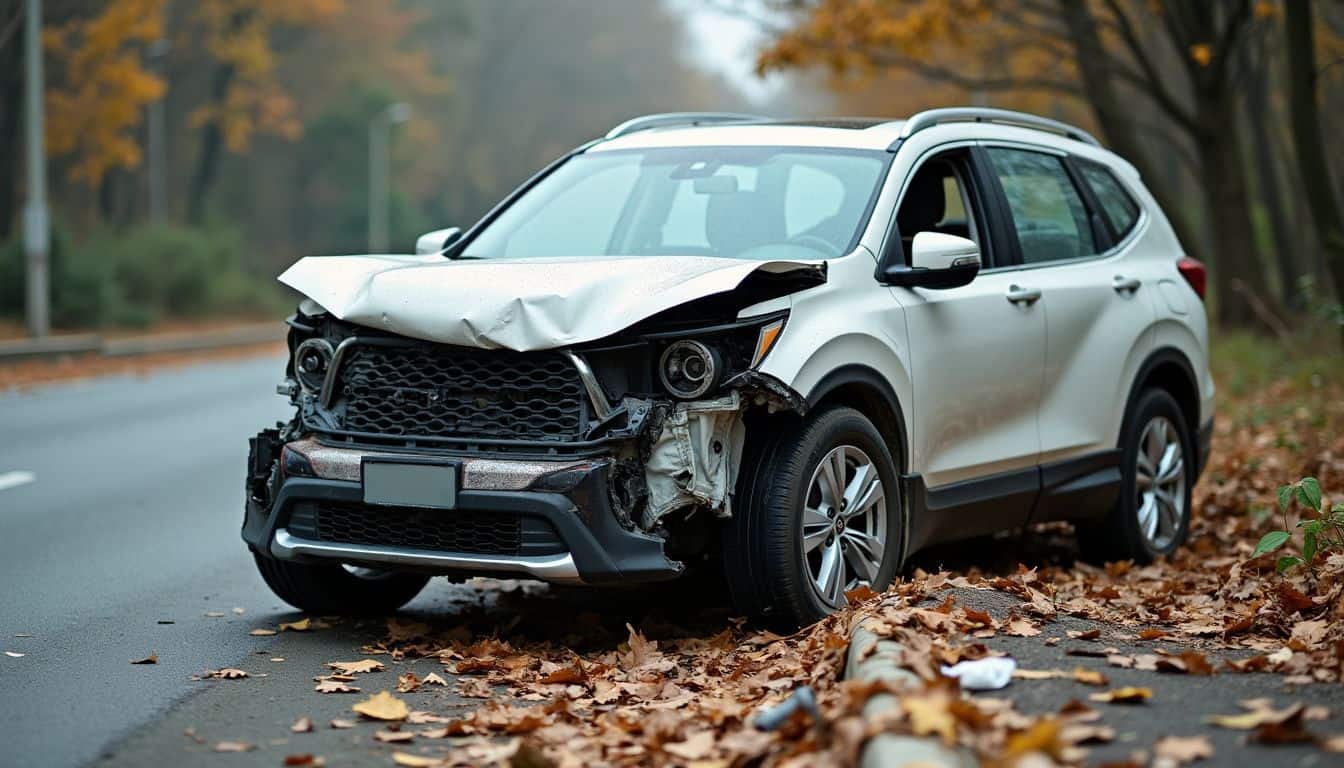Ever been in a fender bender? It’s scary, right? Car accidents happen every day – about 16,500 in the U.S. alone. But don’t worry, we’ve got your back. This guide walks you through 7 crucial steps to take after a crash.
What to do when you get in a car accident? Read on.
Key Takeaways
Stay at the accident scene, turn on hazard lights, and move to a safe spot if possible. Leaving could result in fines or jail time.
Call 911 right away if anyone’s hurt. Take photos of the damage, get contact info from other drivers and witnesses, and get a copy of the police report.
See a doctor even if you feel fine. Some injuries like whiplash can show up later. Follow up with more check-ups to catch any hidden issues.
Contact your insurance company within 24 hours. Be honest about what happened. Consider hiring a lawyer to help with your claim, especially for serious accidents.
After a crash, watch for delayed health problems, decide if your car needs repairs or replacement, and review your insurance policy to see if you need more coverage.
Table of Contents
Immediate Actions to Take Following a Car Accident

Yikes! You’ve just been in a fender-bender. Your heart’s racing, and you’re shaken up – but don’t panic. The next few minutes are crucial, so take a deep breath and focus on what’s important: your safety and the safety of others involved.
Stay at the Scene of the Accident

Stay put after a crash – it’s crucial! It’s not just polite – it’s the law. In Texas, for instance, you must remain at the scene. Leaving could result in fines or even jail time. Plus, staying allows you to exchange info with the other driver and talk to witnesses.
Safety first, ladies! Turn on those hazard lights to alert other drivers. If your car’s still running, try to move it to the shoulder. But if it’s too damaged, don’t worry. Just stay inside with your seatbelt on until help arrives.
The scene of an accident is no place for a hit and run.
Your well-being is the top priority in this frightening situation.
Move to a Safe Location for Safety

After staying at the scene, your next move is important. Safety comes first! If your car’s still running and not badly damaged, drive it to the shoulder. This keeps you out of danger.
The National Highway Traffic Safety Administration says 5 million crashes happen each year in the U.S. Don’t become another statistic!
Turn on those hazard lights, ladies. They’re your best friends right now. They’ll alert other drivers to slow down. If you can’t move the car, don’t worry. Just get yourself to a safe spot.
The side of the road or a nearby sidewalk works great. Your well-being is the most important thing. Once you’re safe, take a deep breath. You’ve got this!
Assess and Assist with Injuries
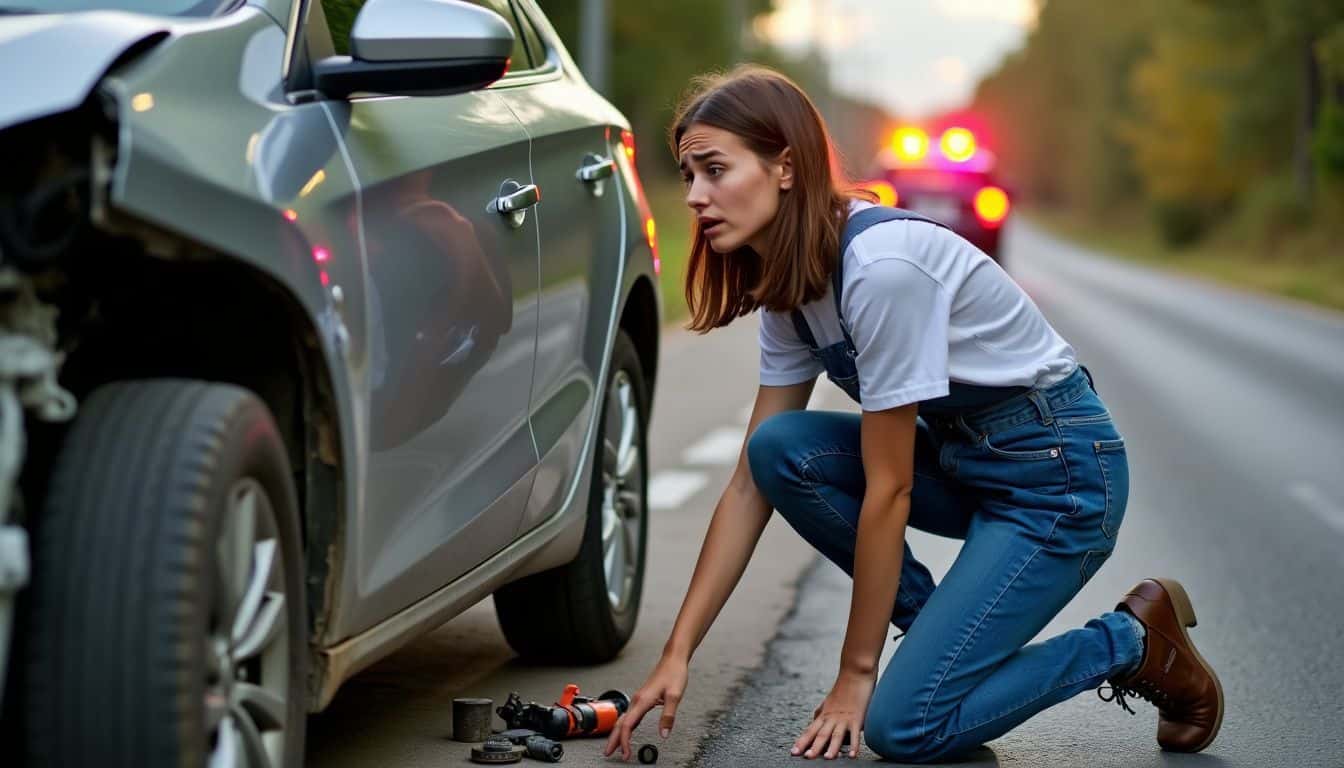
Once you’re safe, it’s time to check for injuries. Your health comes first! Look yourself over for any cuts, bruises, or aches. Then, check on your passengers and other drivers involved.
If anyone’s hurt, call 911 right away. Don’t try to move someone who’s badly injured – you might make things worse. While waiting for help, keep the injured person calm and still.
Even if no one seems hurt, it’s smart to get checked out. Some injuries, like whiplash, don’t show up right away. Plus, the shock of a crash can mask pain. If you’re worried about costs, keep in mind that a pain and suffering claim might help cover medical bills later.
For now, focus on getting the care you need. Your well-being is the top priority!
Exchanging Information and Documenting the Incident
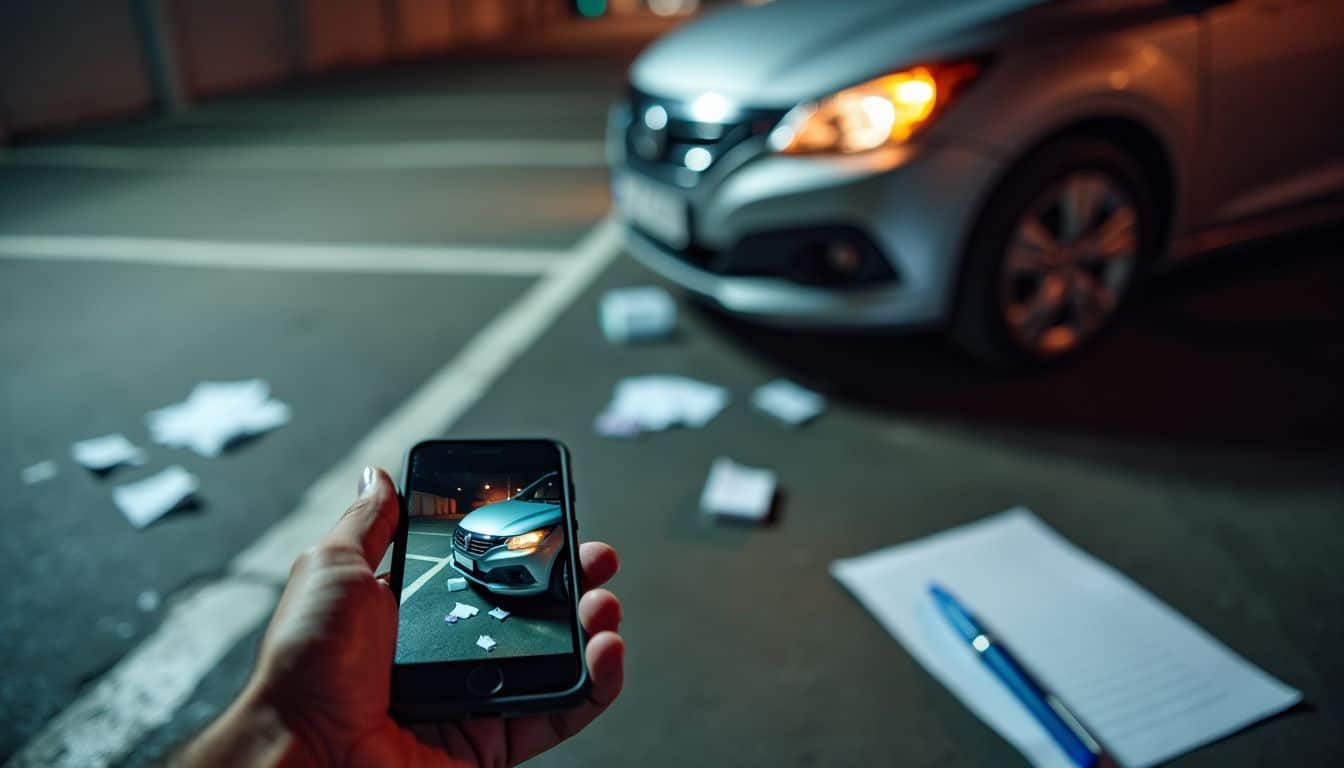
After a crash, you’ll need to swap info and snap some pics. Grab your phone and start documenting – it’ll save you headaches later.
Swap Contact and Insurance Details
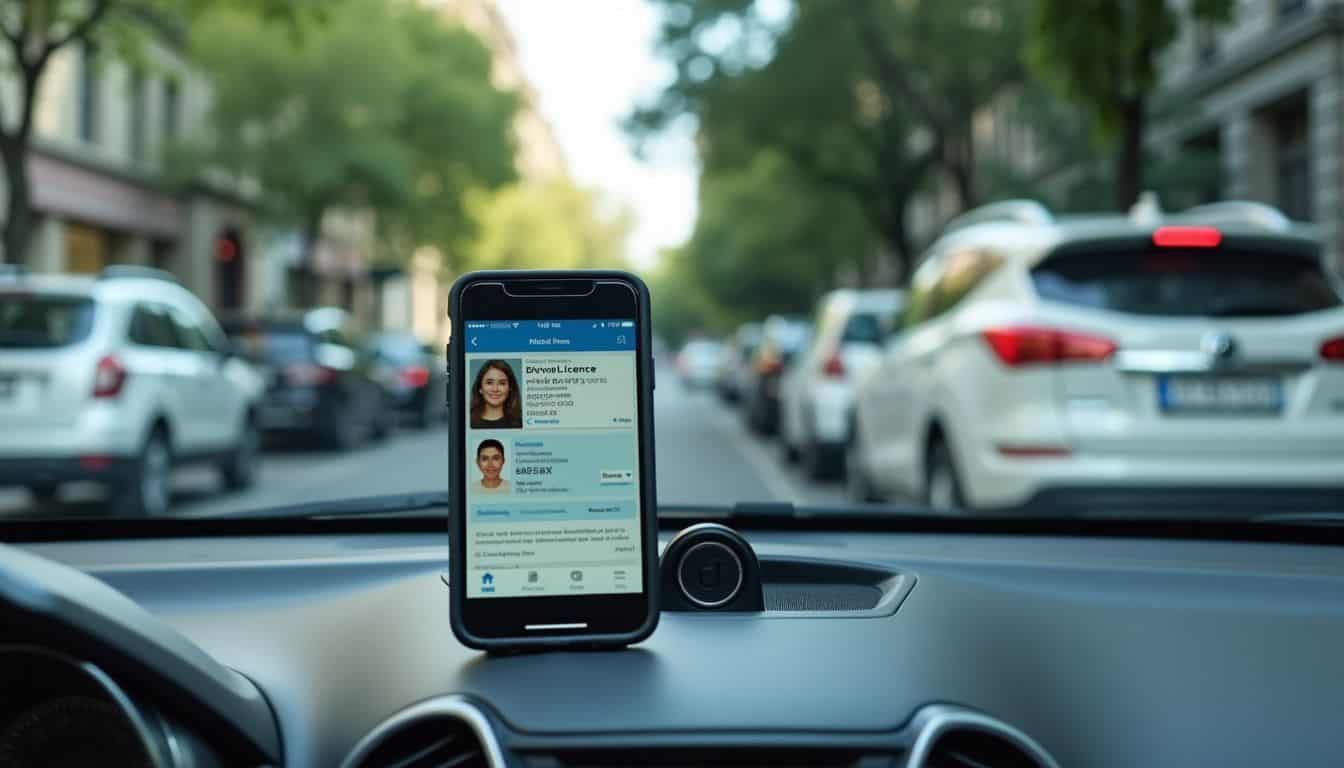
Swapping info after a crash is crucial. Grab your phone and snap pics of the other driver’s license, insurance card, and plate number. It’s quick and easy. If you’re shaky, take a deep breath.
Most folks are nice about it. I once fumbled my cards after a fender-bender, and the other driver helped me pick ’em up. We even shared a laugh!
Don’t forget to jot down names and numbers of any witnesses. They might come in handy later. Oh, and if the other driver gives you grief? Stay cool. Call the cops to help sort things out.
They’re experts at handling these tricky situations. Trust me, I’ve been there – it’s way better to have an officer on scene than to argue on the roadside.
Capture the Accident Scene Visually
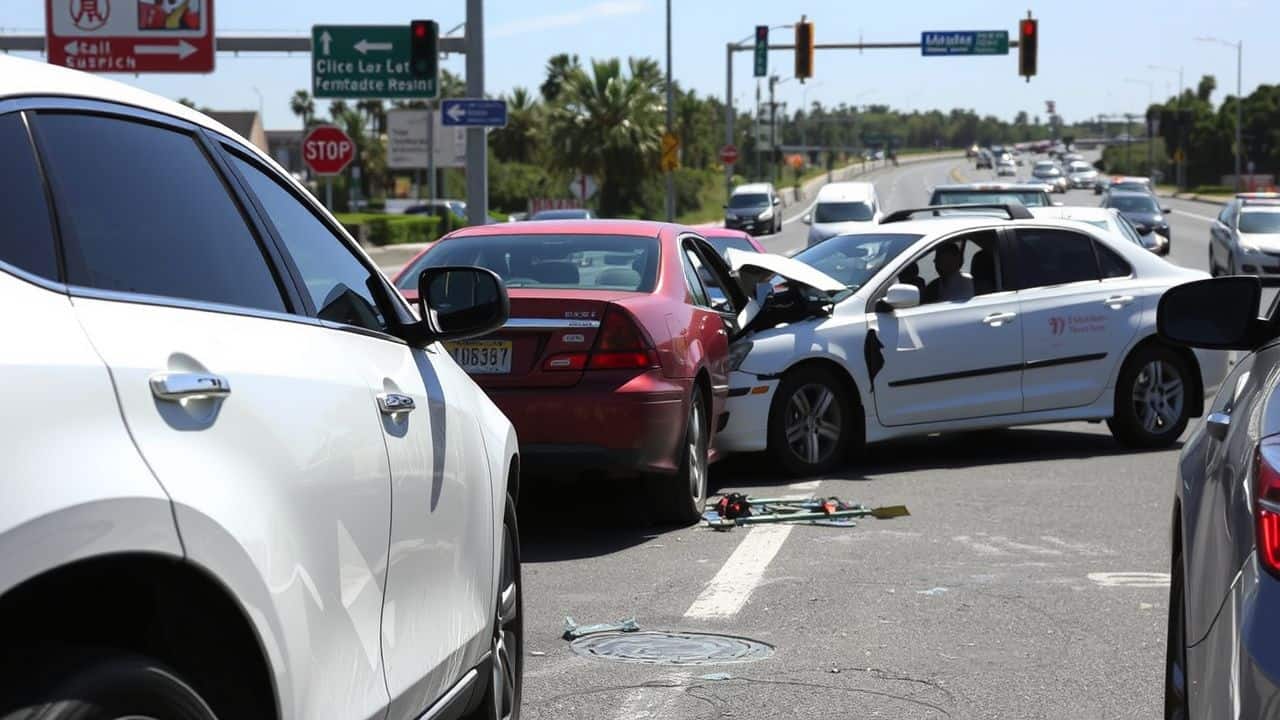
Grab your phone and start taking pictures! Photos are essential after a car accident. They’ll show what actually happened when memories become unclear. Take pictures of all the vehicles involved – damage, scratches, everything.
Don’t forget to capture road signs, traffic lights, and any skid marks. These details can be crucial for your case later.
Now, let’s discuss location. Use your phone’s GPS to mark the spot or take photos of nearby landmarks. This information helps insurance representatives and attorneys reconstruct the scene.
And if anyone’s injured (hopefully not), take pictures of those injuries too. It might seem strange, but believe me – these images can be incredibly useful later on. Just remember to be respectful and ask for permission first.
Collect Statements from Witnesses
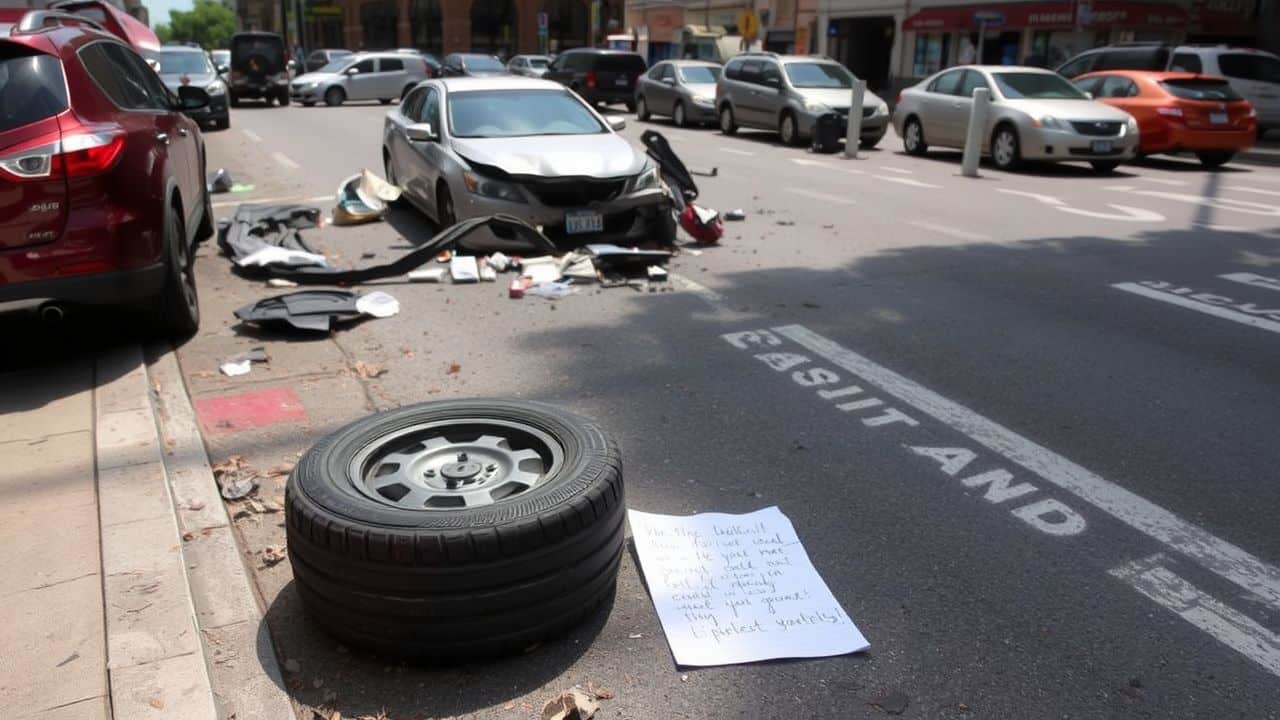
Witnesses can be your best friends after a car crash. They saw what happened and can back up your story. Ask them nicely for their names and phone numbers. Some might even write down what they saw right then and there.
This helps a ton when you’re dealing with insurance later.
A witness is like a guardian angel in a fender bender – they’re there to protect your truth.
Getting witness info isn’t just smart – it’s crucial. These folks can make or break your case if things get messy. Plus, talking to them might reveal details you missed in the chaos.
Next up, let’s chat about why you need to ring up the cops ASAP after an accident.
Navigating Legal and Reporting Requirements
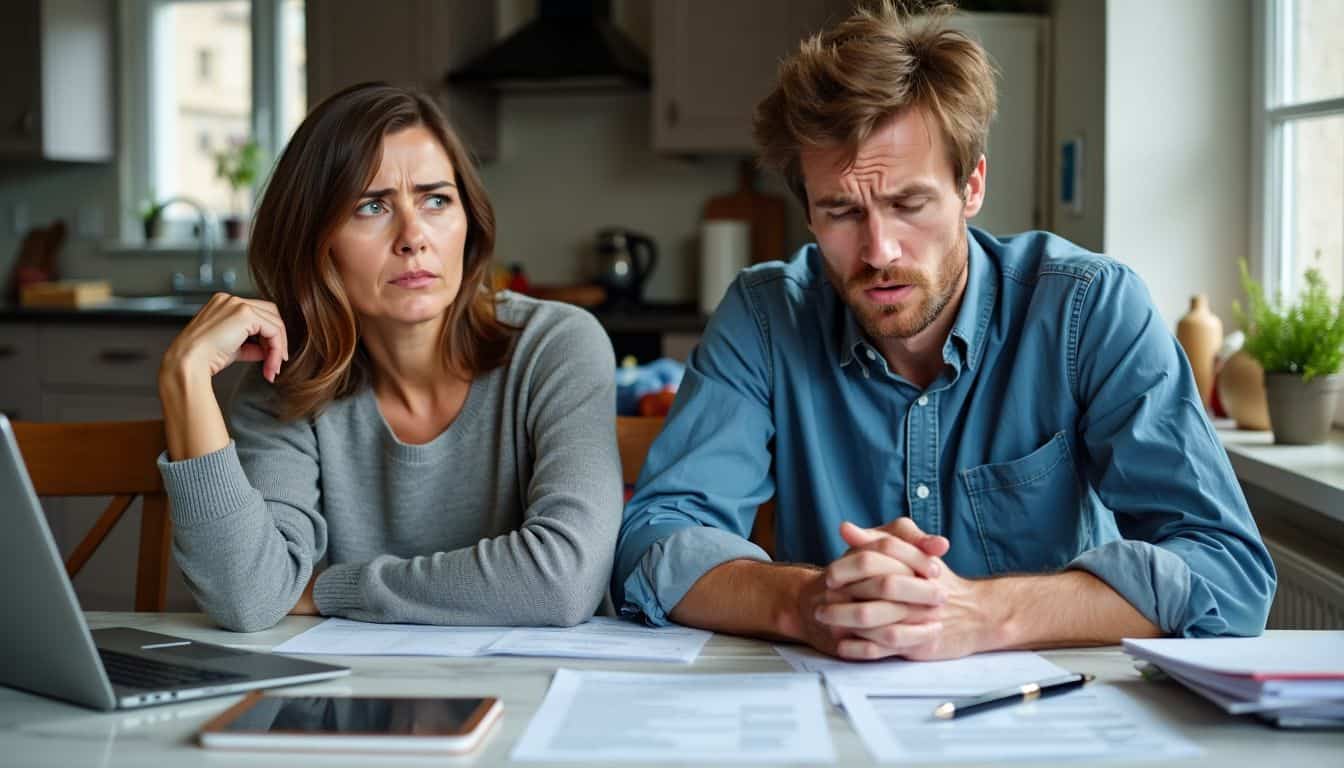
Car accidents can be a legal minefield. You’ll need to know your rights, file police reports, and maybe even talk to a lawyer. Want to learn more about handling the legal side of a crash? Keep reading!
Notify the Police Immediately
After a crash, call 911 right away. It’s the law in Texas if anyone’s hurt or there’s over $1,000 in damage. The police will come, ask questions, and make a report. This report is super important – it’s like a play-by-play of what happened.
You’ll need it for insurance claims and maybe even court stuff later.
Don’t forget to grab a copy of the police report. In Texas, you’ve got 10 days to file a “CR-2 Blue form” with the Department of Transportation. It sounds fancy, but it’s just paperwork to keep track of accidents.
Filling it out might seem boring, but it’s crucial for protecting yourself legally and financially. Trust me, future you will thank present you for taking care of this now!
Secure a Copy of the Police Report
After calling the cops, grab that police report. It’s a gold mine of info for your insurance claim. Cops know the drill – they’ll tell you how to get your hands on it. You’ve got options: snag it online, pop by the station, or wait for snail mail.
Your insurer might even fetch it for you when you file. Trust me, I’ve been there. That report? It’s your ace in the hole if things get sticky with insurance.
A police report is like a trusty map in the wild world of insurance claims.
Don’t drag your feet on this one, ladies. That report is your ticket to smooth sailing through the claims process. It’s packed with facts that’ll back you up if the other driver’s story suddenly changes.
I once had a fender bender where the other driver tried to switch up their story. But that police report? It saved my bacon. So, make getting that report a top priority. Your future self will thank you!
Know Your Legal Rights
Once you’ve got the police report, it’s time to brush up on your rights. Ladies, listen up! In Connecticut, you’ve got two years to file a lawsuit if you’re hurt in a crash. That’s your window to seek justice.
But here’s the kicker – if the other driver was at fault, they must pay for your injuries. It’s the law.
Don’t let anyone push you around. If you’re badly hurt, talk to a lawyer. They can help you handle the legal process. Knowing your rights can make a big difference in how your case turns out.
So stand tall, speak up, and don’t settle for less than you deserve. Your well-being matters, and the law is on your side.
Addressing Medical Needs Post-Accident
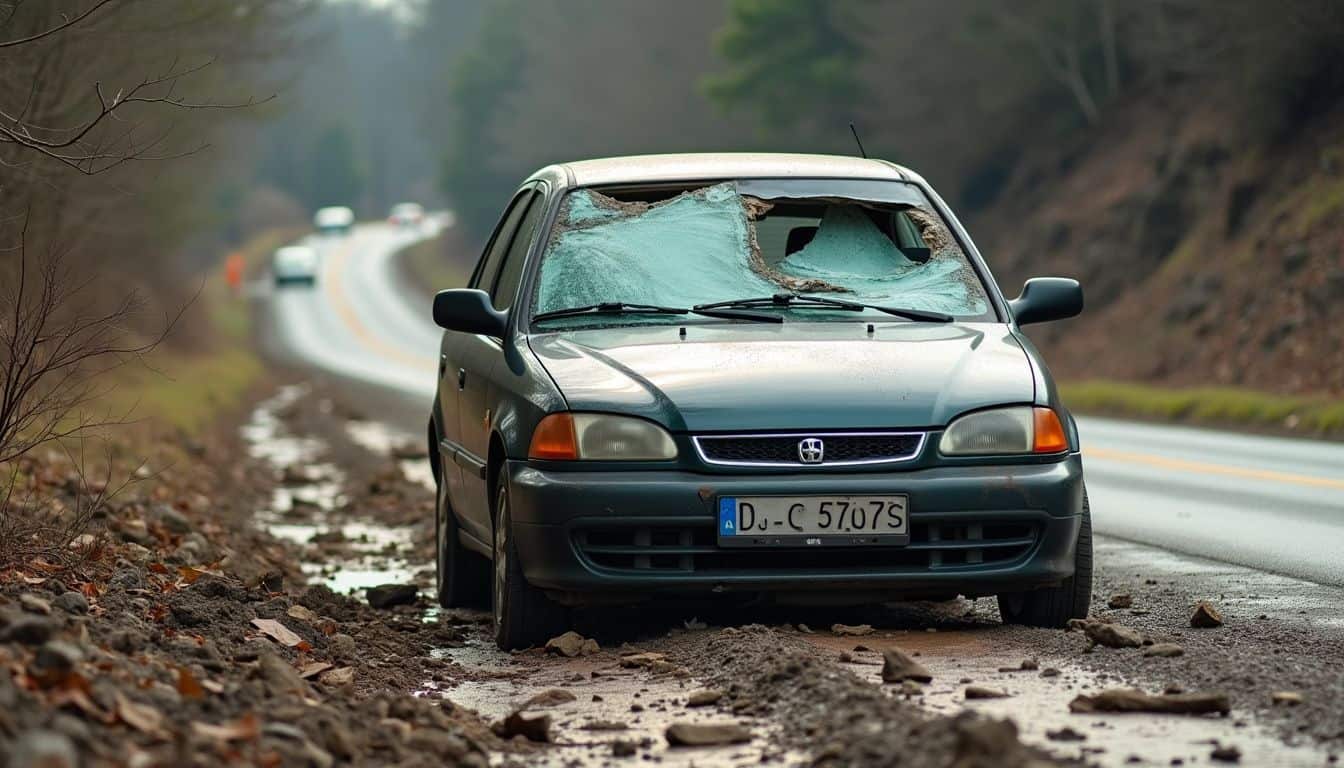
After a crash, your health comes first. Don’t brush off those aches – they might be hiding something serious. Get checked out ASAP, even if you feel fine.
Seek Immediate Medical Attention
After a car crash, your health comes first. Don’t ignore any aches or pains – they might be more serious than you think. Go to the ER or urgent care right away, even if you feel okay.
Doctors can find hidden injuries that could cause problems later. Also, getting checked out creates a paper trail for your insurance claim. It’s a good idea to play it safe and get looked at by a pro.
Your body’s been through a shock, so take care of it. Follow the doctor’s orders and keep all your appointments. If you start feeling odd days after the accident, don’t brush it off.
New symptoms can show up later, so stay aware. Your well-being is most important. Now, let’s talk about the next key step – exchanging info with the other driver. If you’ve been injured on vacation, the process might be a little different, but the basics still apply.
Schedule Follow-up Medical Evaluations
Once you’ve gotten immediate care, don’t stop there. Your health matters most. Book follow-up visits with your doctor. These check-ups are key to catching hidden issues that might pop up later.
I learned this the hard way after my own fender-bender. I felt fine at first, but neck pain crept in weeks later. My doc caught it early, thanks to those follow-ups. She ordered tests, started treatment, and saved me from bigger problems down the road.
Plus, these visits create a paper trail. That’s gold for insurance claims or legal stuff if needed. So, ladies, put those appointments on your calendar. Your future self will thank you!
Managing Insurance and Financial Matters
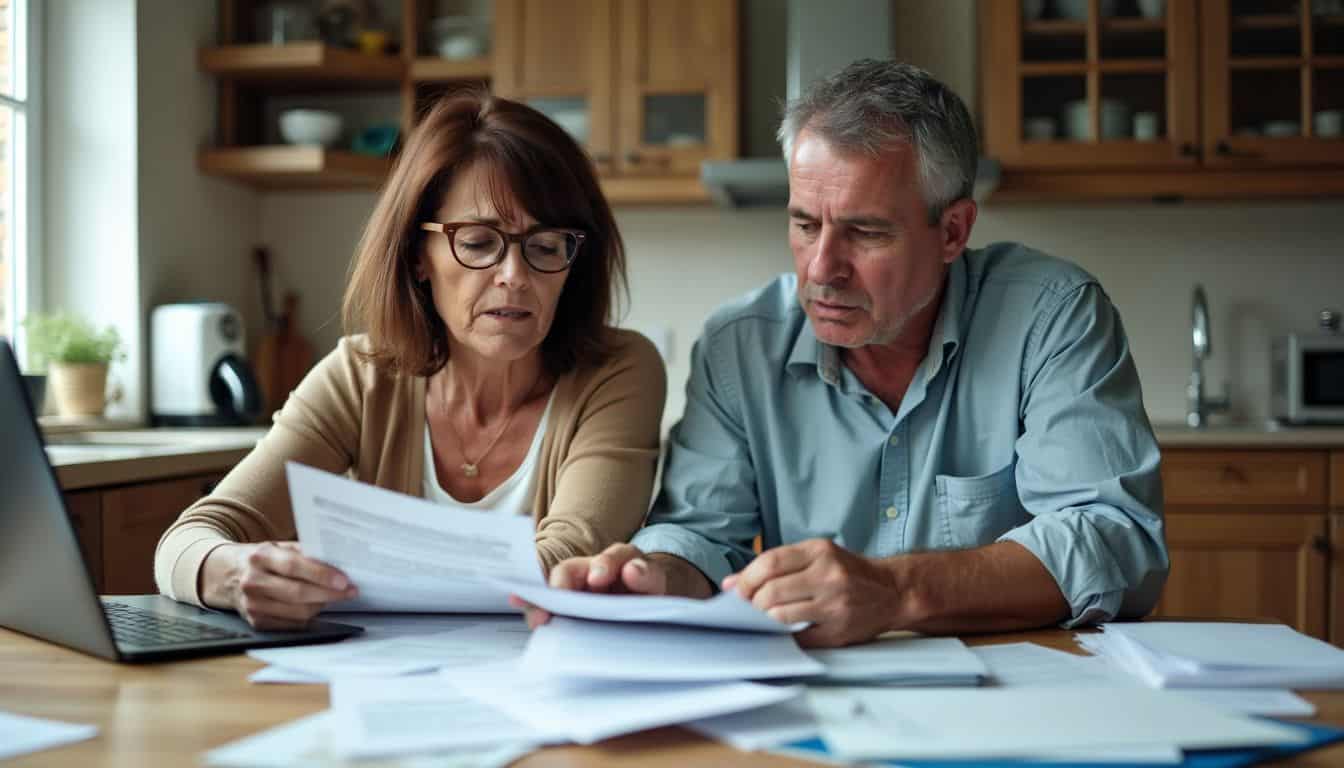
After a crash, dealing with insurance can feel like a maze. But don’t worry – we’ve got your back with some handy tips to make it smoother… and maybe even save you some cash!
Initiate Contact with Your Insurance Provider
Ring up your insurance company right after a crash. It’s a must-do step. Your policy likely has rules about how fast you need to tell them. Most want to know within 24 hours. Don’t worry if you’re shaken up – that’s normal.
Just give them the basic facts. They’ll guide you through the next steps.
Your insurer is there to help, not judge. They’ll ask for details about the accident. Be honest, even if you think you messed up. Lying can get your claim denied. If you’re not sure about something, it’s okay to say so.
They’ll send an adjuster to check out your car. This person will figure out how much fixing your ride will cost.
Familiarize Yourself with the Claims Procedure
Getting to know your insurance claim process is key. First, ring up your insurance company right away. They’ll walk you through the steps. It’s like following a recipe – each insurer has their own way of doing things.
You’ll need to fill out some forms and maybe chat with an adjuster. Don’t worry, it’s not as scary as it sounds!
Keep all your papers in order – it’ll make life easier. Jot down notes about the accident while it’s fresh in your mind. Photos are your best friend here. Snap pics of everything – your car, the other car, the scene.
Oh, and don’t forget to ask about rental cars if you need one. Your policy might cover it. Just take it step by step, and you’ll be fine.
Consider Legal Representation for the Accident
Legal help can be a game-changer after a car crash. You might think, “I can handle this on my own.” But here’s the deal… insurance companies aren’t your pals. They’re looking out for their bottom line, not your well-being.
A good lawyer knows all the tricks and can fight for what you deserve. Plus, many work on a “No Win No Fee” basis.
That’s no chump change!
I learned this the hard way after my own fender-bender last year. Trying to navigate the mess solo gave me a headache worse than the accident itself! A skilled attorney can be your secret weapon.
They’ll deal with the paperwork, negotiate with stubborn insurers, and make sure you don’t get shortchanged on medical bills or lost wages. It’s like having a fierce mama bear in your corner – but one who speaks fluent legalese.
Long-Term Outcomes and Vehicle Considerations
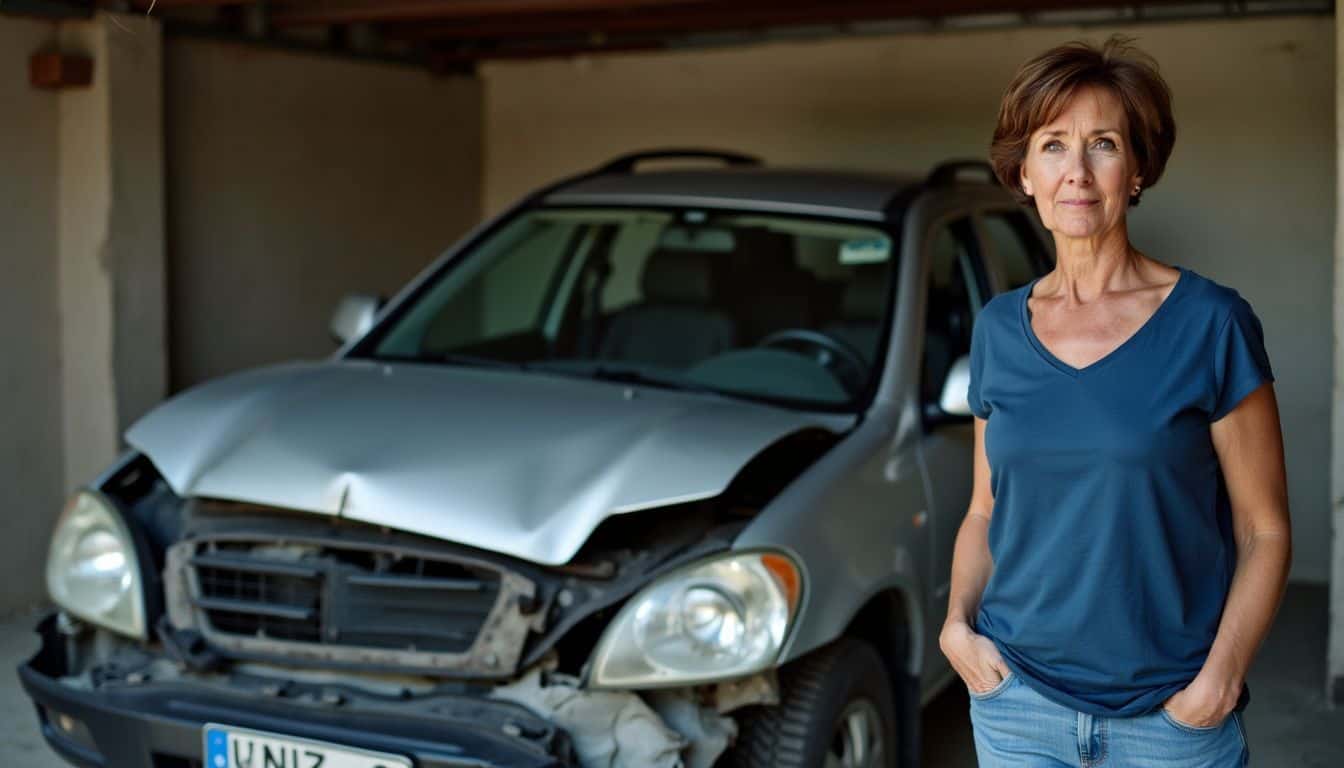
Car accidents can leave lasting marks. You might face ongoing health issues or tough choices about your ride.
Monitor for Any Delayed Health Issues
After a car crash, you might feel fine at first. But don’t let that fool you! Some injuries can sneak up on you days or even weeks later. Keep an eye out for weird aches, headaches that won’t quit, or sudden dizzy spells.
These could be signs of hidden problems like whiplash or a concussion. It’s smart to jot down how you’re feeling each day – like a health diary. This way, if something pops up later, you’ve got proof for your insurance company or doctor.
Lots of gals brush off little pains, thinking they’ll go away. But trust me, I learned the hard way after my fender-bender last year. My neck felt fine at first, but a week later? Ouch! I couldn’t turn my head without wincing.
So, listen to your body and don’t play tough. If anything feels off, even a tiny bit, get it checked out ASAP. Your health is worth more than any car, and catching issues early can save you a ton of hassle – and pain – down the road.
Evaluate Vehicle Repair or Replacement Needs
After a crash, you’ll need to figure out what to do with your car. Is it fixable, or is it toast? Your insurance company will help decide. They’ll look at repair costs versus the car’s value.
If fixes cost more than the car’s worth, they may call it a total loss. In that case, you’d get a check for the car’s fair market value.
Let’s talk repairs. You get to pick where to fix your car – don’t let anyone tell you different. According to men’s lifestyle site Unfinished Man, it’s your right to choose.
I learned this the hard way after my fender bender last year. The shop I picked did great work, and I felt good about my choice. Just make sure to get a few quotes first. It’ll help you spot any fishy estimates.
Reassess Your Insurance Policy
Now that you’ve dealt with vehicle repairs, it’s time to look at your insurance. Your policy might need a tune-up too! After an accident, it’s smart to check if your coverage still fits your needs.
Maybe you need more protection, or you could save some cash with a different plan.
Give your insurer a ring and chat about your options. They can explain what’s covered and what’s not. Don’t forget to ask about any new discounts you might qualify for. Oh, and here’s a pro tip: make sure any new car you buy is covered for the first 30 days.
If you’re stuck or have questions, the California Department of Insurance hotline (1-800-927-4357) is super helpful. They can give you the scoop on your rights and what to expect from your insurance company.
People Also Ask
What’s the first thing I should do after a car wreck?
Stay calm and check for injuries. If anyone’s hurt, call an ambulance right away. Move to a safe spot if you can. Then, ring the police to report the traffic accident.
Do I need to swap info with the other driver?
You bet! Trade names, phone numbers, and insurance details. Snap pics of their license plate and vehicle registration. This info is gold for your insurance company and any potential legal action.
Should I see a doctor even if I feel fine?
Absolutely! Some injuries, like neck pains or head pain, can show up later. Get checked out to be safe. It’s crucial for your health and any personal injury claim you might file.
What if the other driver doesn’t have insurance?
That’s a pickle! Your uninsured motorist coverage might save the day. Chat with your insurance agent about your options. You might need to dig into your own pocket or head to small claims court.
How do I deal with the auto repair shop?
Shop around! Get a few estimates. Ask about using original equipment manufacturer parts. Keep all paperwork. Your insurance adjuster might want to inspect the damage before repairs start.
What if I can’t afford my medical expenses?
Don’t sweat it! Look into Medicaid or Medicare if you qualify. Some hospitals offer financial assistance. Your personal injury attorney might help you get compensation for medical care and emotional distress.
References
https://www.candsins.com/blog/helpful-auto-accident-tips/
https://www.allstate.com/resources/car-insurance/in-case-of-a-car-accident
https://kujawskiassociates.com/2024/04/10/10-crucial-steps-to-take-after-a-car-crash/ (2024-04-10)
https://www.bankrate.com/insurance/car/7-steps-to-take-in-a-car-accident/ (2024-06-11)
https://ngklawfirm.com/how-to-exchange-insurance-information-after-a-car-accident/
https://dor.mo.gov/driver-license/insurance/accident-information.html
https://www.diehlofrobinson.com/essential-steps-to-take-after-a-car-accident/ (2023-07-18)
https://www.ncbi.nlm.nih.gov/pmc/articles/PMC7901695/
https://1800lionlaw.com/what-to-do-after-a-car-accident/
https://www.progressive.com/answers/what-to-do-after-car-accident/
https://www.pinderplotkin.com/how-to-retrieve-a-police-report/ (2024-03-25)
https://www.injuredct.com/faqs/what-to-do-after-a-car-accident/
https://wfirm.com/how-to-protect-your-rights-after-an-accident-expert-tips/ (2024-06-18)
https://falklawyers.com/7-steps-you-should-take-immediately-after-a-car-accident/
https://gemmalaw.com/personal-injury/car-accident-lawyer/avoid-losing-your-case/
https://www.yatesautomotive.com/blog/what-steps-to-take-after-a-car-accident (2024-05-28)
https://www.insurance.ca.gov/01-consumers/105-type/95-guides/01-auto/hadaccident.cfm
https://lambergoodnow.com/hub/first-thing-accident/
https://www.investopedia.com/what-to-do-after-a-car-accident-a-7-step-guide-5089114
https://www.ncbi.nlm.nih.gov/pmc/articles/PMC2396820/
https://wfirm.com/what-to-do-after-a-car-accident-10-vital-steps/ (2024-05-13)
https://www.alvandigroup.com/blog/2022/august/7-crucial-steps-to-take-after-a-car-accident/
